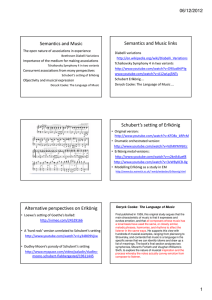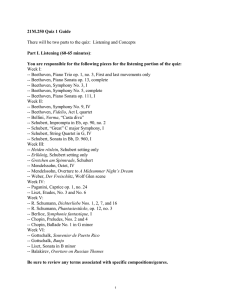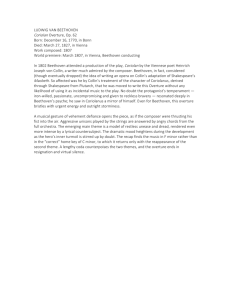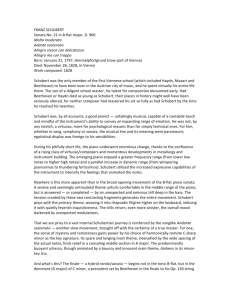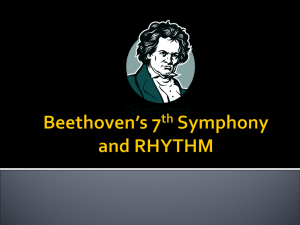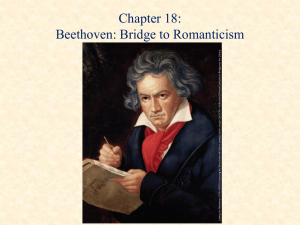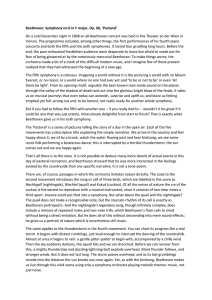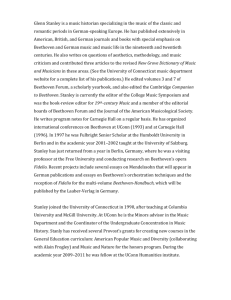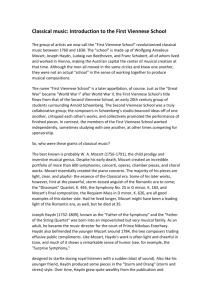21 - Monroe County Schools
advertisement
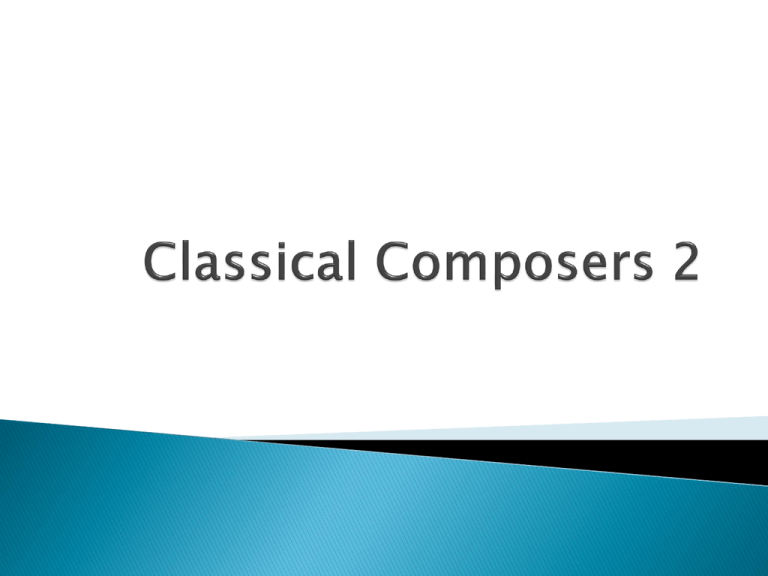
The youngest son of a parish schoolmaster and a cook, was born in Vienna on 31 January 1797. The Schubert family was musical. Father Schubert played the violincello, and Franz`s older brothers, Ignaz and Ferdinand, were violinists. Their music-making gave Franz Schubert his earliest musical impressions. After graduating form school, he became a teacher to support himself. Teaching did not suit him. He later traveled with friends and composed/performed. Appreciation of his music during his lifetime was limited, but interest in Schubert's work increased dramatically in the decades following his death at the age of 31. Quintet in A, D. 667 "Trout“ http://www.youtube.com/watch?v=kd8_fLqz 3gk&feature=related Franz Schubert composed his Lied "Erlkönig" in 1815 for solo voice and piano, with text from the Goethe poem. Der Erlkönig is a poem by Johann Wolfgang von Goethe. It depicts the death of a child assailed by a supernatural being. Narrator Father Son The Erlking All parts are sung by one vocalist Schubert has placed each character in largely a different vocal range, most vocalists try to use a different vocal color for each one. The Narrator lies in the middle range The Father lies in the low range The Son lies in a high range, representing the The Erlking's vocal line undulates up and down resulting in striking contrast. The Erlking lines are typically sung softly, portraying a sneaky persuasiveness. http://www.youtube.com/watch?v=9yGwoxMLeo&feature=related Born: Bonn ,Germany December 16, 1770 Died: Vienna March 26, 1827. Beethoven is undoubtedly one of the best known and most loved composers of all time. Beethoven's mother was Magdalena Keverich and his father was Johann Beethoven. They named their son after his grandfather. Beethoven's musical talent showed itself early, and his father attempted, unsuccessfully, to exploit the boy as a prodigy. At the age of 22 Beethoven moved to Vienna where he studied under Franz Joseph Haydn. In Vienna he earned a reputation as a piano virtuoso and improviser, and he began publishing his own compositions soon thereafter. By the early 1800s he had established his reputation as a great and daring composer. By 1801 Beethoven began to lose his hearing. He continued composing nonetheless, and his 9th Symphony, amongst many other works, was composed after he had become totally deaf. The cause of his deafness is not known for certain but has been attributed variously to syphilis, lead poisoning, a chill he caught in 1796 which led to a disease believed to be typhus, or possibly even his habit of immersing his head in cold water to stay awake. http://www.youtube.com/watch?v=YAOTCtW9v0M Beethoven is viewed as a transitional figure between the Classical and Romantic eras of musical history. He continued a trend towards larger orchestras that has persisted throughout the history of classical music. He wrote only one opera, Fidelio. It has been said that he wrote beautiful choral music without regard for the limitations of human singers, treating the voice as if it were a symphonic instrument. http://www.youtube.com/watch?v=ip_1hQpVZ88 &feature=related Beethoven was much taken by the ideals of the Enlightenment. He initially dedicated his third symphony, the Eroica, to Napoleon in the belief that the general would sustain the democratic ideals of the French Revolution, but later he crossed out the dedication as Napoleon's imperial ambitions became clear. The fourth movement of his Ninth Symphony is a setting of Schiller's poem Ode to Joy, an optimistic hymn championing the brotherhood of humanity. http://www.youtube.com/watch?v=bQXwSPaO5ZI Moonlight sonata http://www.youtube.com/watch?v=nT7_IZPH Hb0 Symphony #5 http://www.youtube.com/watch?v=rRgXUFnf KIY

